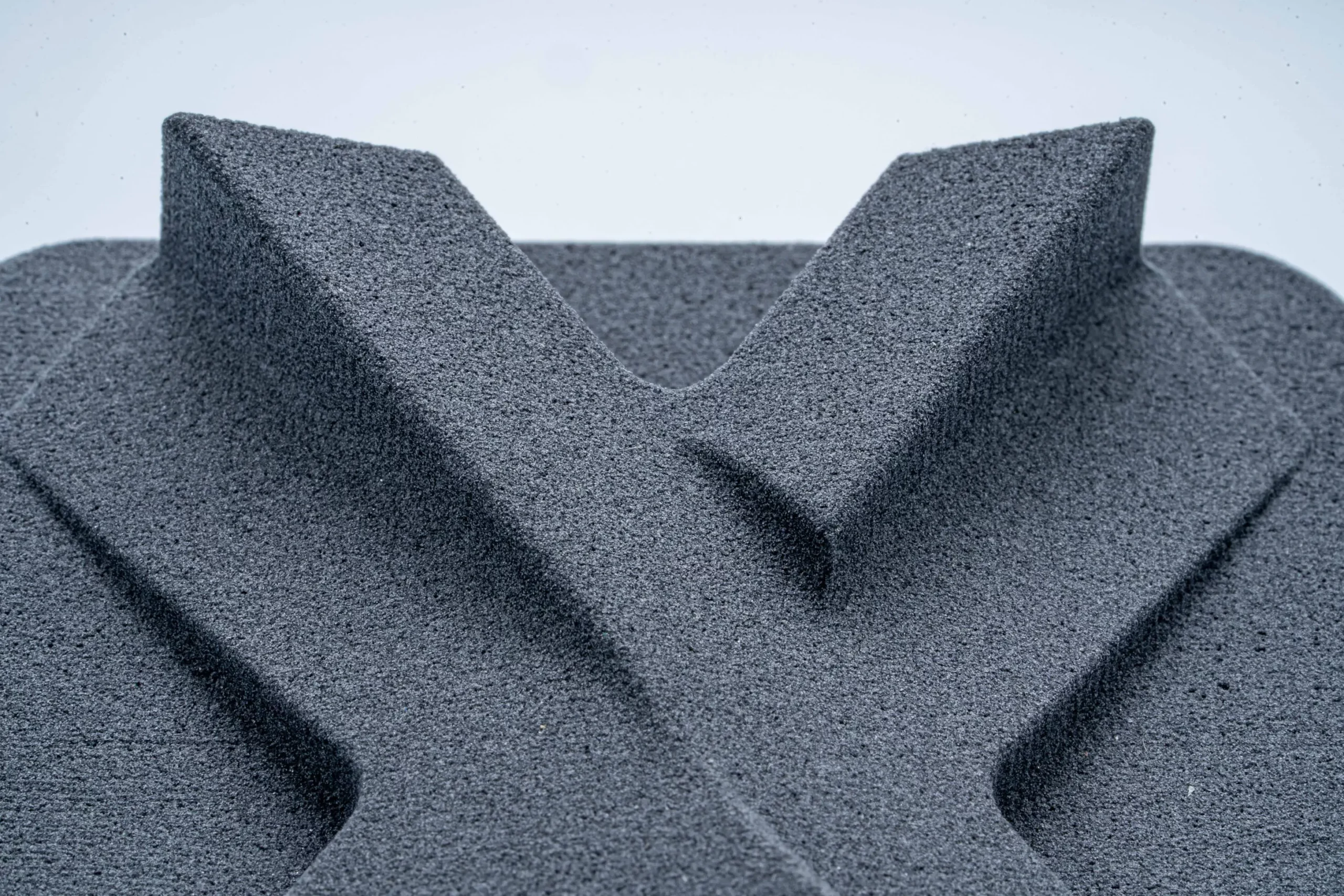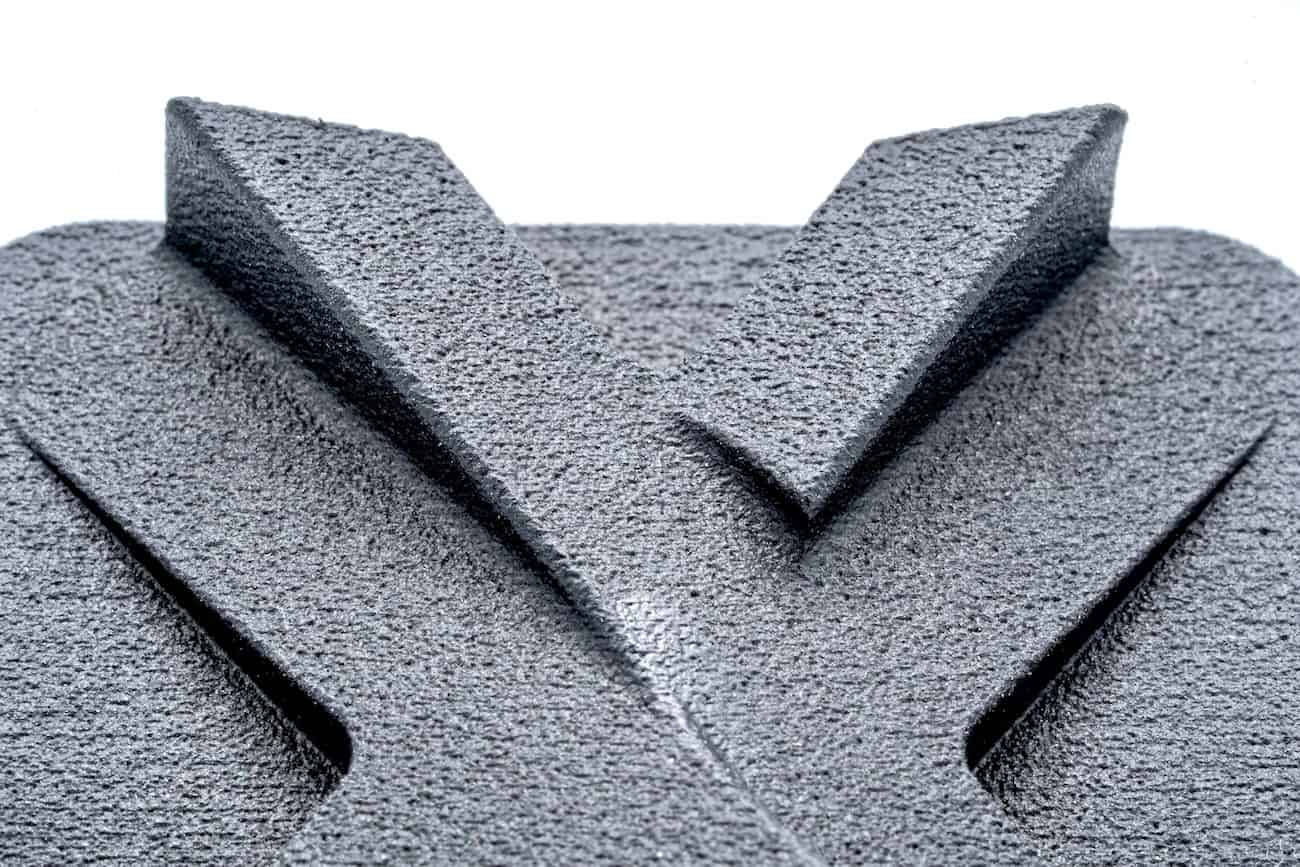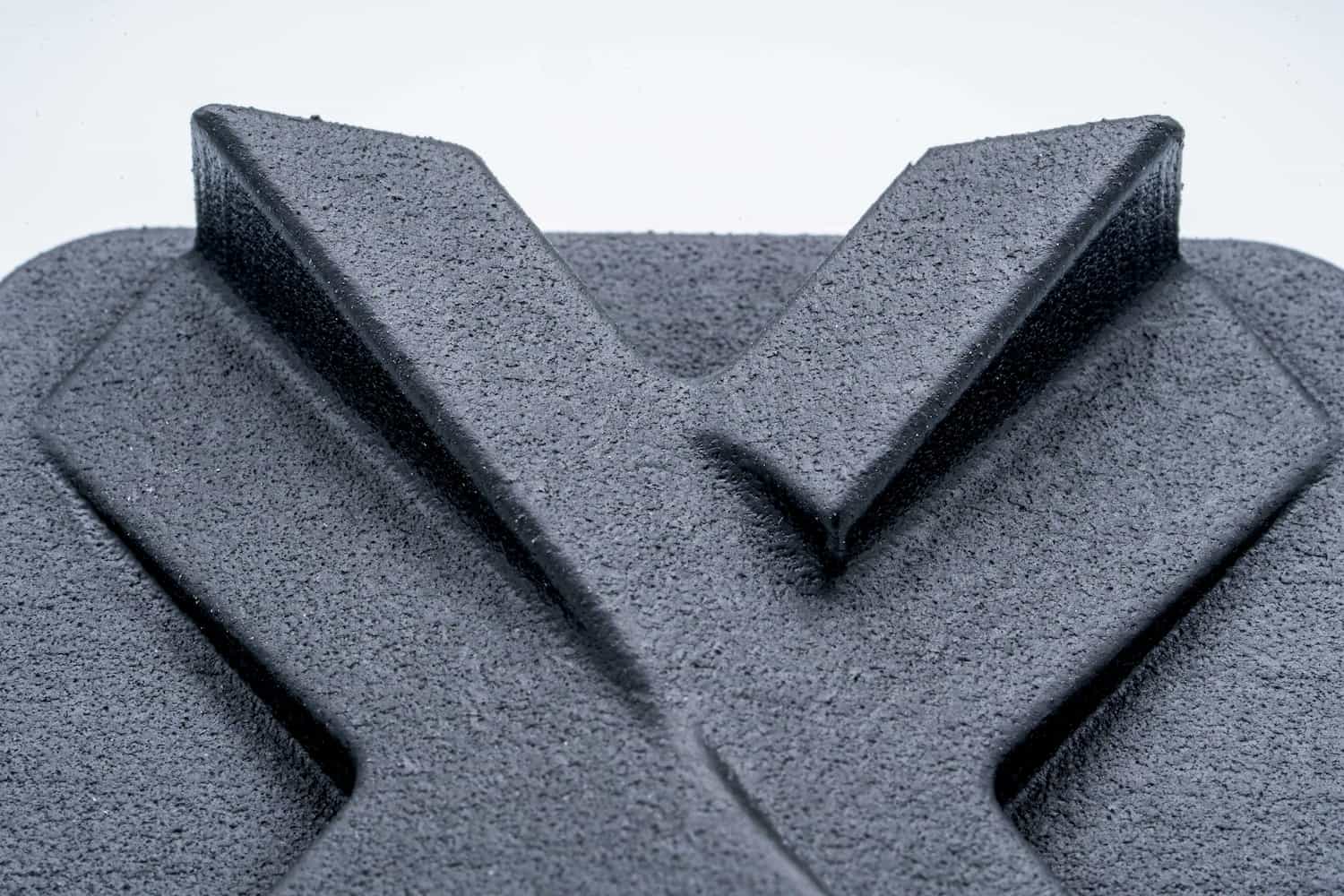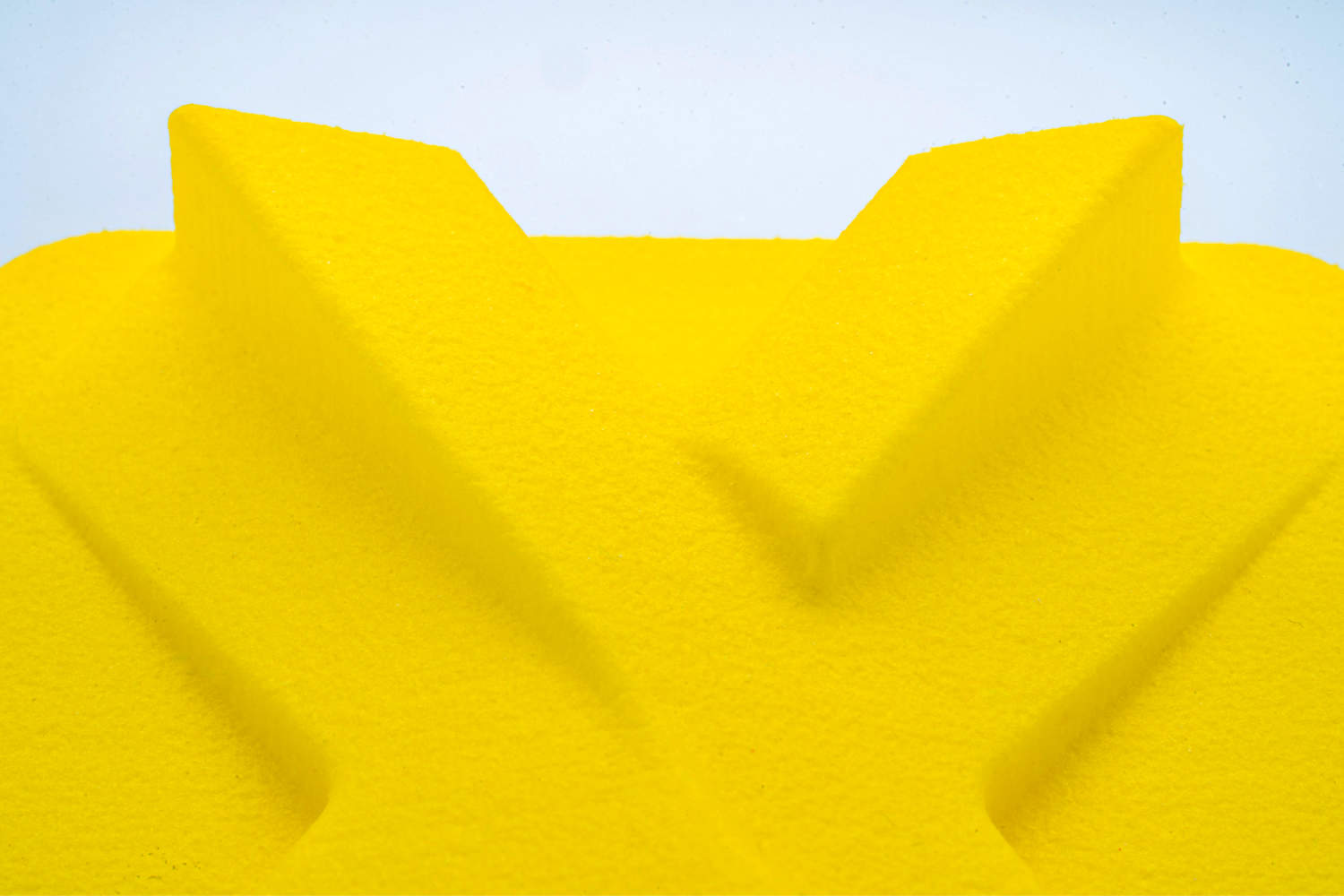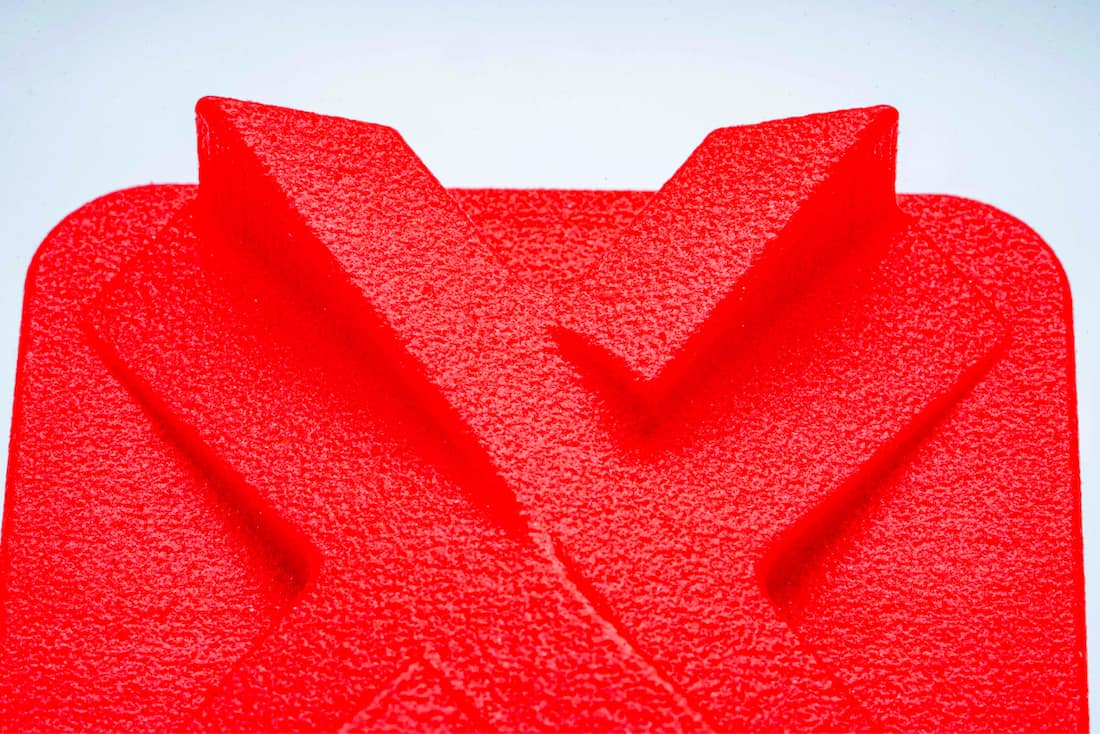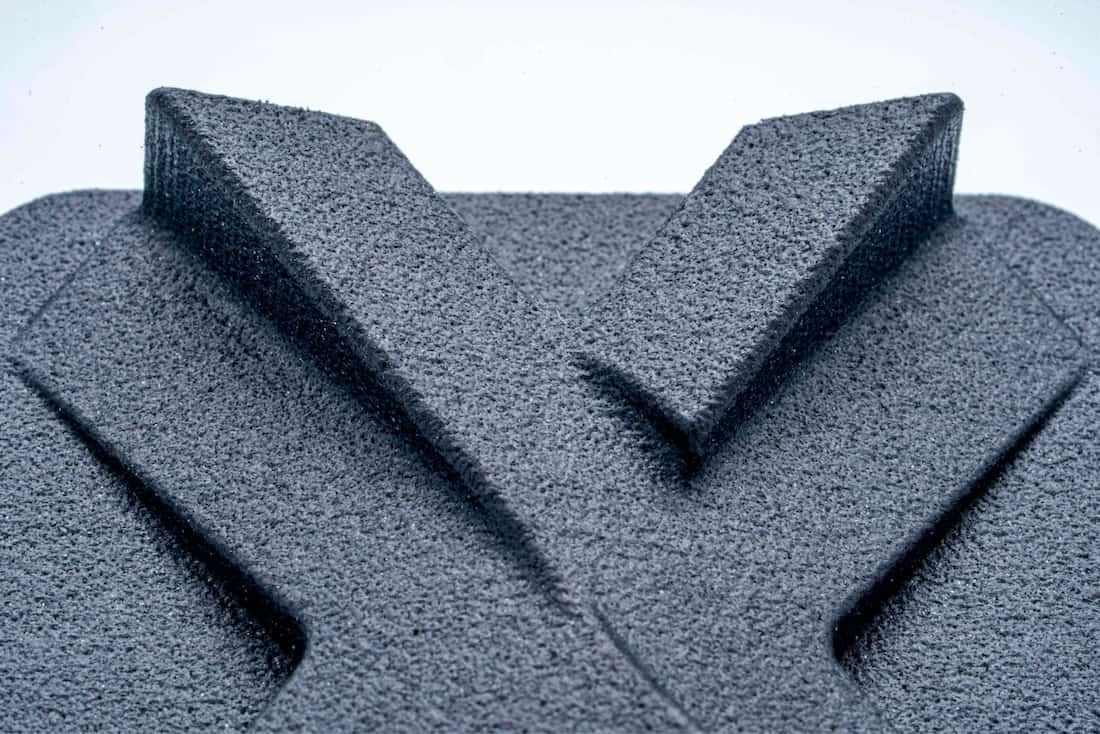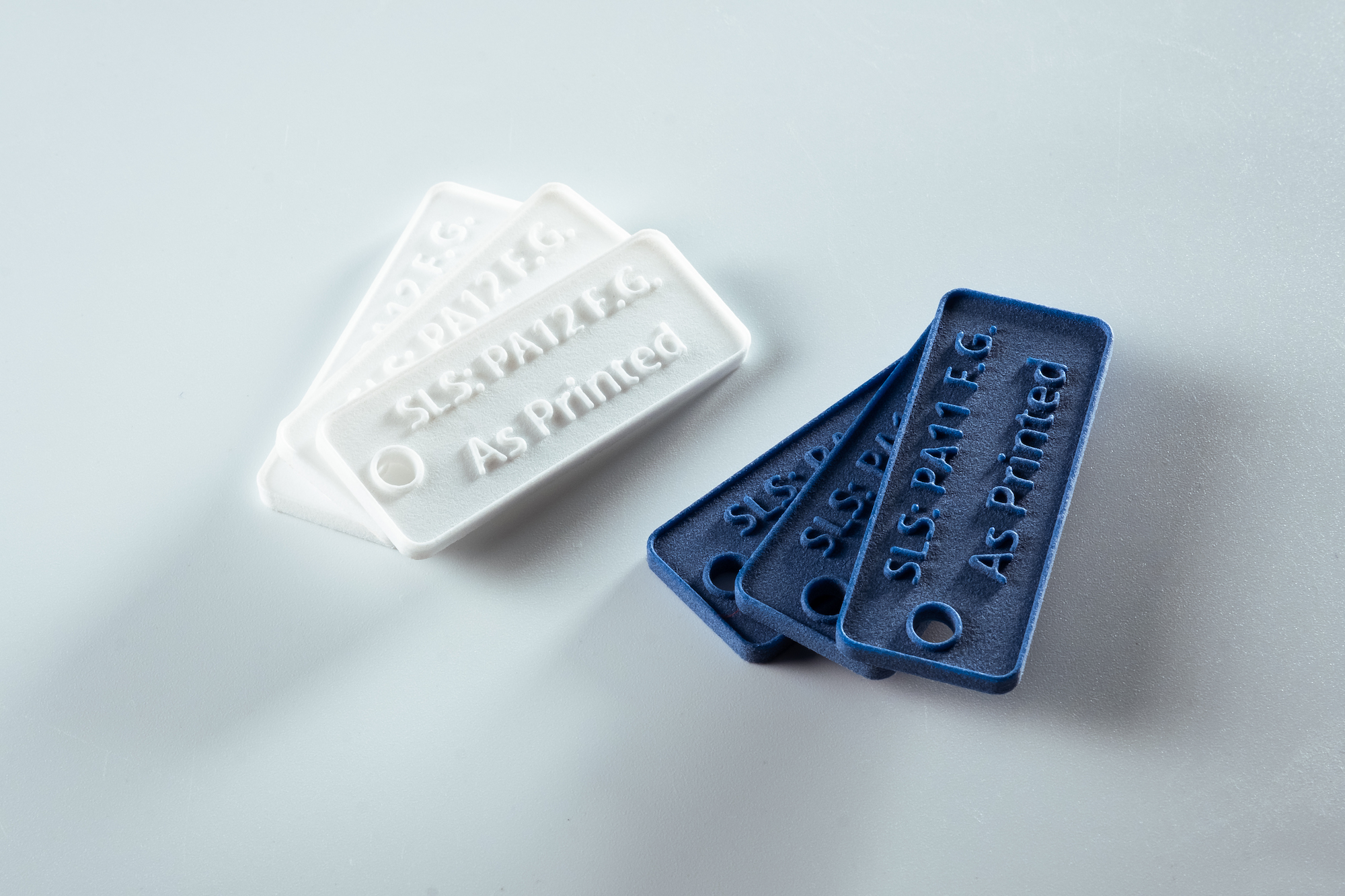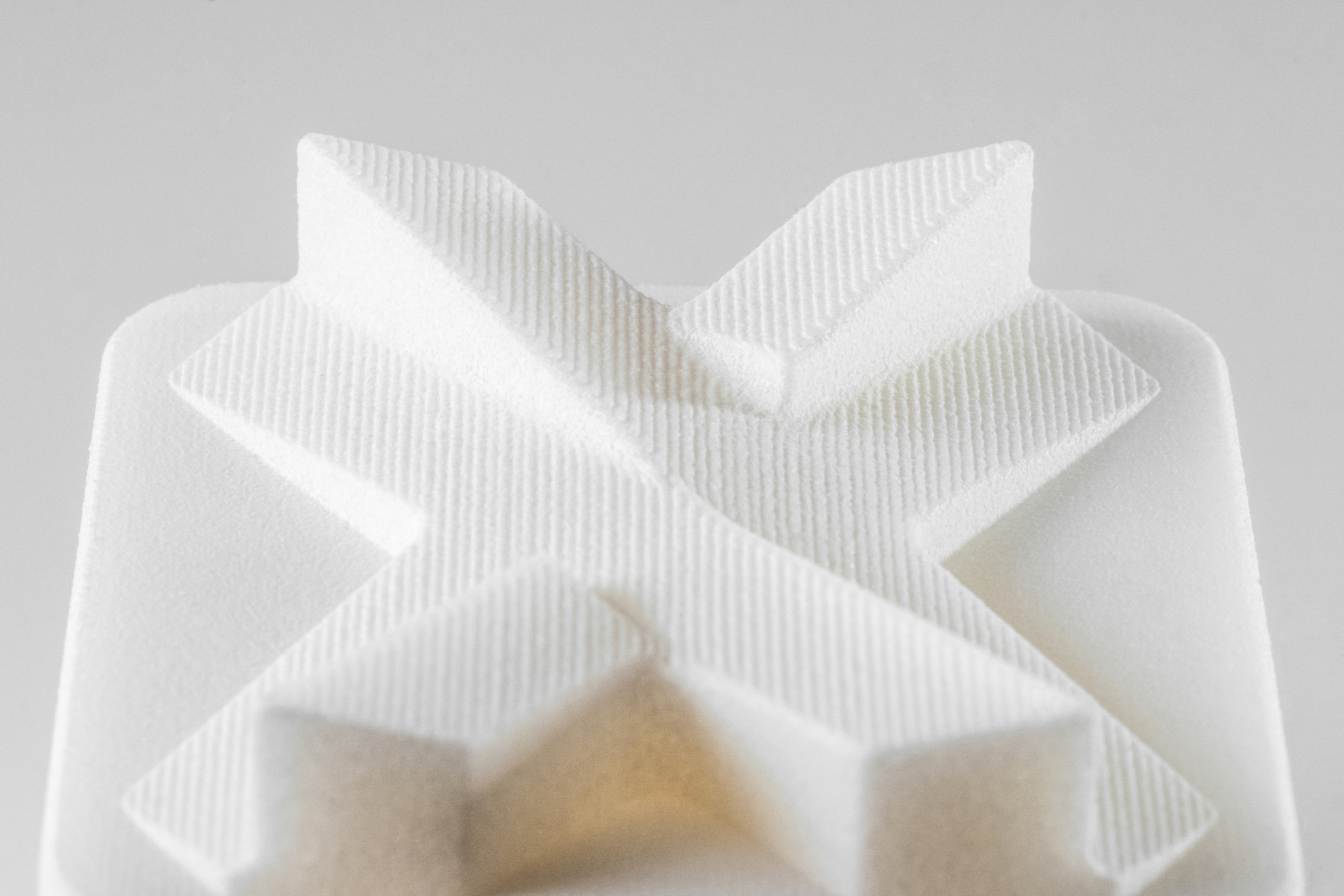Selective Laser Sintering (SLS) 3D Printing Services
- Free Delivery
- PA 11, PA 12, Flex TPU, Alumide
- Manufacturing From 3 Business Days
Start A New 3D Printing Quote
STEP | STP | SLDPRT | STL | IPT | 3DXML | CATPART | PTC | PRT | SAT
SLS 3D Printing Capabilities
Selective Laser Sintering (SLS) is one of the most popular 3D printing technologies that produces highly accurate and durable parts that are perfect for end-use, low-to-mid volume production, or rapid prototyping.
Though SLS provides high detail quality and perfect production repeatability, it is one of the most inexpensive options for industrial 3D printing services because it can build parts in bulk without support structure requirements. SLS 3D printed parts can be post-processed by media tumbling and colouring.
- Lead time: 3 days
- Build volume: up to 340 x 340 x 605 mm (320 x 320 x 580 mm recommended)
- Layer thickness: ~0.1 mm and for water-tight parts 1.5 mm
- Minimum feature size: 0.5 mm
- Tolerance: ±0.3% (± 0.3 mm)

Try Xometry Out Now In Just A Few Steps
Multiple designs for different parts can be imported at the same time to produce a single quote. In less than a minute, a detailed cost estimation appears on the screen.
First, select the manufacturing process you require. You can then choose from over 70 materials, both metals and plastics, and from a wide range of finishes and certifications.
Once you have selected the required options, all you need to do is confirm the order and pay for it on the secure payment platform. Your design will be analysed by engineers.
Within a short amount of time, you will receive the parts you ordered directly to your shipping address. You can track your package at any time in your personal account.
Advantages of SLS with Xometry
Massive Capacity
We can quickly produce both prototypes and large batches thanks to the largest manufacturing network in Europe, with over 2,000 vetted partners
Fast Production
You will get your 3D printed parts fast delivered in as fast as 3-5 days.
Quality Assurance
We have strong QA procedures, controlled by an in-house team of QA engineers, which allows us to deliver high quality parts.
Engineering Check & Status Updates
All designs are checked by engineers before they’re sent for 3D printing. After confirming your order, you will receive status updates on your production.
SLS 3D Printing Materials
- Alumide® / Nylon 12 (PA 12) filled with aluminium
- Nylon 11 (PA 11)
- Nylon 12 (PA 12) glass-filled
- Nylon 12 / PA 12 (SLS, MJF)
- Nylon 12 flame retardant / PA 2241 FR
- PA 11 Food Grade
- PA 12 Food Grade
- Polypropylene (PP)
- Flex TPU
- Rubber-like TPU (Industrial grade)
SLS Materials for Special Applications
Food-Grade
Food-grade PA 11 and PA 12 are highly regarded food-compliant materials that have gained popularity along with SLS 3D printing. These materials possess exceptional biocompatibility and are specifically formulated to meet the stringent requirements for producing food-related objects.
Xometry offers two food-compliant materials compatible with SLS:
- PA 12 – in white colour
- PA 11 – in blue colour
Flame-Retardant
PA 2241 FR is a polyamide powder infused with a concentrated flame-retardant compound. This high-performance material proves to be highly advantageous when it comes to producing flame-resistant components possessing remarkable mechanical characteristics. This material is hence suitable for aeronautics and aerospace applications.
Pros & Cons of SLS 3D Printing
| Advantages | Considerations |
|---|---|
| Free form design: doesn’t need support features | Limited material and colour choice |
| Versatile, durable, flexible and chemical resistant material (Nylon) | Surface roughness (however, could be reduced by media tumbling) |
| Scalable into series | Warping issues for large feature |
| Fast: Xometry can deliver them in just 3 days | Limited post-processing options |
| Cheap, especially for small series |
SLS Manufacturing Specifications & Capabilities
| SLS | HP MJF | SLA | FDM | Carbon DLS | DMLS | Polyjet | |
|---|---|---|---|---|---|---|---|
|
Lead time |
3 days |
3 days |
7 days |
8 days |
5 days |
10 days |
7 days |
|
Build volume |
up to 340 x 340 x 605 mm, but usually, we recommend the maximum size of 320 x 320 x 580 mm |
up to 380 x 284 x 380 mm, while we normally recommend the maximum size of 356 x 280 x 356 mm |
• 145 × 145 × 185 mm (Standard) |
• 350 x 350 x 350 mm (Standard) |
up to 119 x 189 x 300 mm. Recommended size: Within 100 x 100 x 150 mm |
400 x 400 x 400 mm |
up to 490 mm x 391 mm x 200 mm |
|
Layer thickness |
~0.1 mm and for water-tight parts 1.5 mm, when wall thickness is higher |
~0.08 mm |
min 0.02 |
~0.05-0.3 mm |
~0.1 mm |
0.02 – 0.08 mm depending on the material |
0.04 mm |
|
Minimum feature size |
0.5 mm |
0.5 mm |
0.2 mm |
up to 0.2 mm |
0.5 mm |
0.75 mm for cosmetic features, 1.5 mm for structural features |
1.2 mm or greater for rigid. 2 mm or greater for rubber-like |
|
Tolerance |
±0.3% (± 0.3 mm) |
±0.3% (± 0.2 mm) |
• ±0.5% (±0.2 mm) (Standard) |
±0.5% (±0.5 mm) (Standard & Industrial) |
±0.1% (±0.1 mm). However, tolerances are not guaranteed on the first attempt at a new design. |
±0.2% (±0.1 – 0.2 mm) |
±0.1 mm for the first dozens of mm is typical, plus ±0.05 mm for every mm thereafter |
|
Description |
One of the most popular and inexpensive technologies for industrial 3D printing |
A technology that produces highly accurate and durable parts at fast speeds, especially compared to other powder bed fusion technologies |
A technology that produces extremely accurate and high-resolution parts |
Widely known for a great material selection, accuracy, and possibility to print large parts |
A breakthrough technology that uses digital light projection, programmable liquid resins, and oxygen-permeable optics to produce parts with exceptional durability, resolution, and surface finish |
Metal 3D printing technology. Selectively fuses a fine metal powder in aluminium or stainless steel |
Polyjet is a rigid photopolymer 3D printing technology that produces high-detailed models |
|
Support structures |
No |
No |
Yes, for overhanging features |
Yes, for overhanging features |
Yes, for overhanging features |
Yes, for overhanging features |
Yes, for overhanging features |
Xometry Also Offers These Services
Order 3D Printed Parts Online
All uploads are secure and confidential.
 Europe
Europe  United Kingdom
United Kingdom  Türkiye
Türkiye  USA & Canada
USA & Canada  Asia
Asia  الشرق الأوسط
الشرق الأوسط 